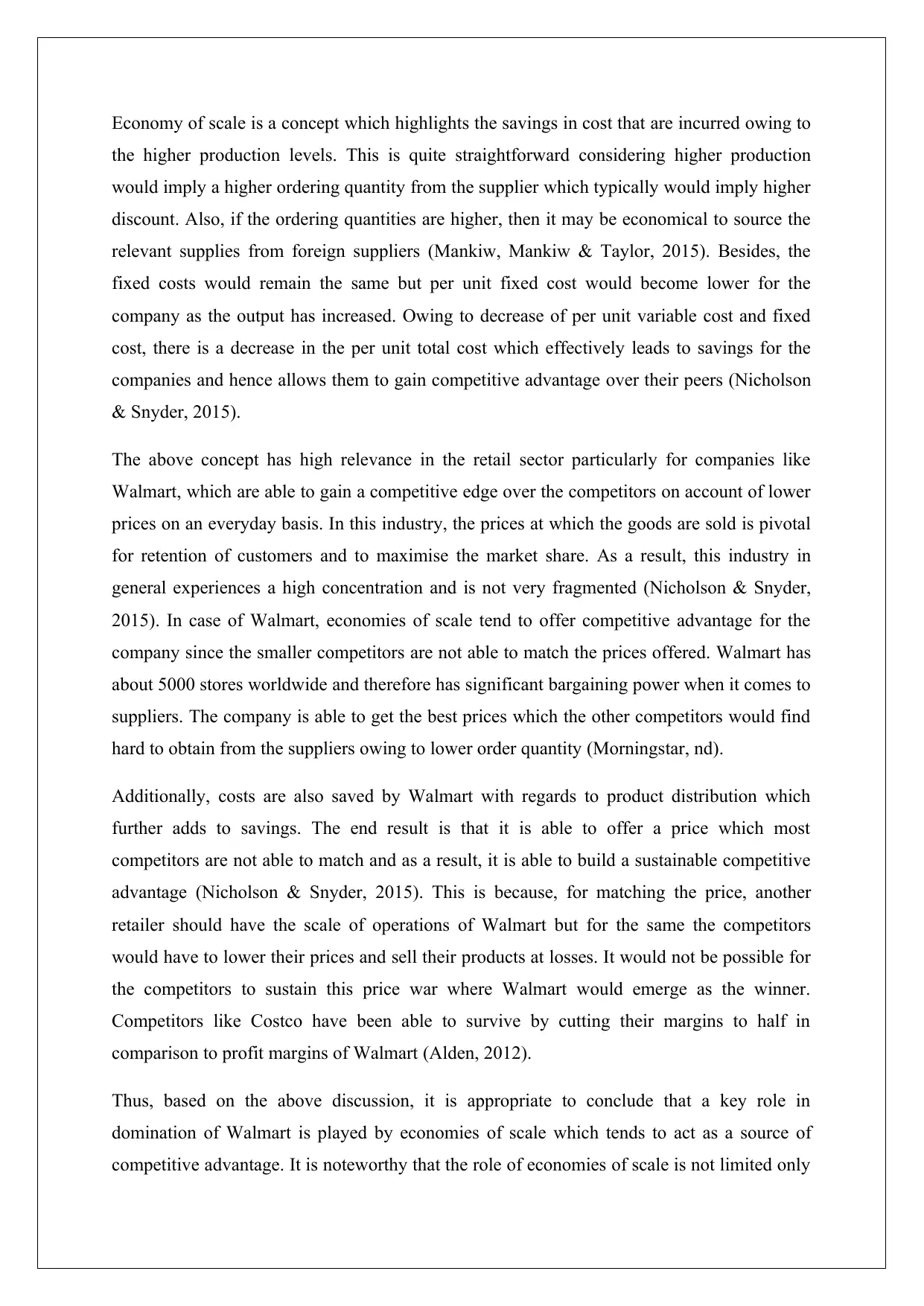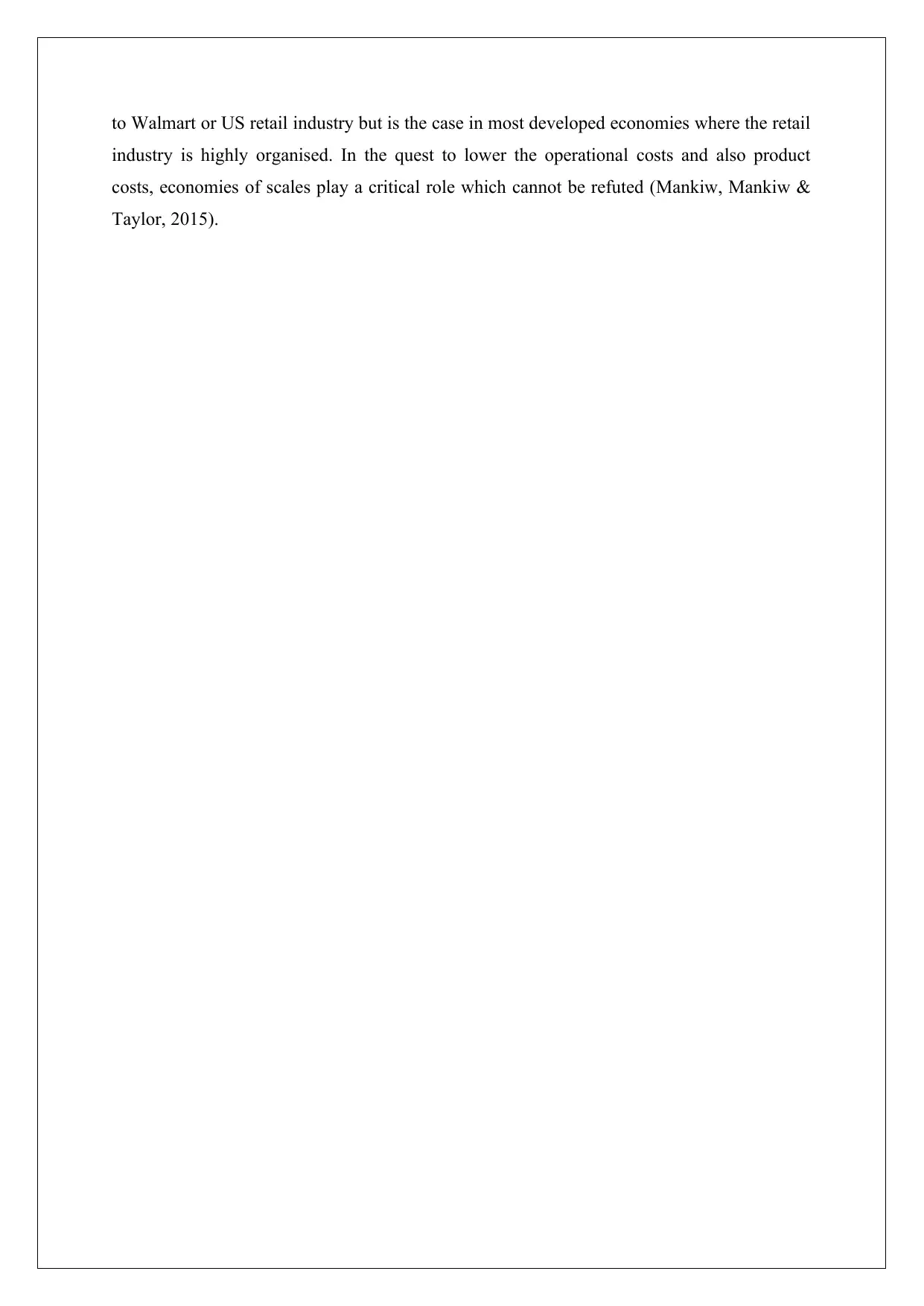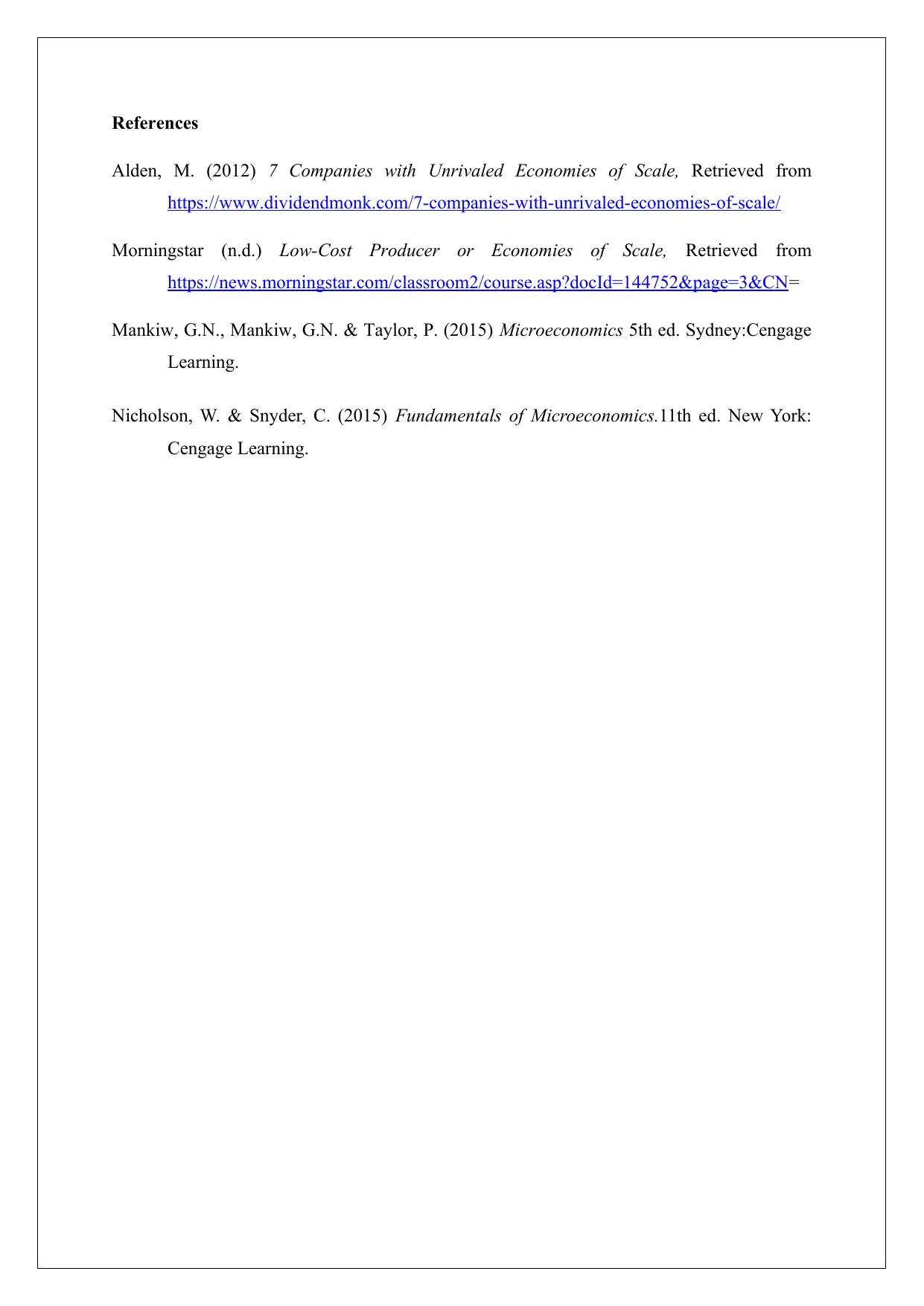The Role of Economy of Scale in Walmart's Retail Dominance: A Report
VerifiedAdded on 2023/06/03
|4
|671
|281
Report
AI Summary
This report examines the concept of economy of scale and its significant role in Walmart's competitive advantage within the retail industry. Economy of scale, which refers to the cost savings achieved through higher production levels, allows Walmart to negotiate better prices with suppliers, reduce per-unit costs, and offer lower prices to consumers. The report highlights Walmart's extensive global presence and its ability to leverage its size to gain bargaining power, optimize product distribution, and maintain a sustainable competitive advantage over smaller competitors. The analysis compares Walmart's strategy with that of competitors like Costco and concludes that economy of scale is a crucial factor in Walmart's dominance, particularly in the organized retail sector of developed economies. The report references key academic sources to support its findings.
1 out of 4











![[object Object]](/_next/static/media/star-bottom.7253800d.svg)